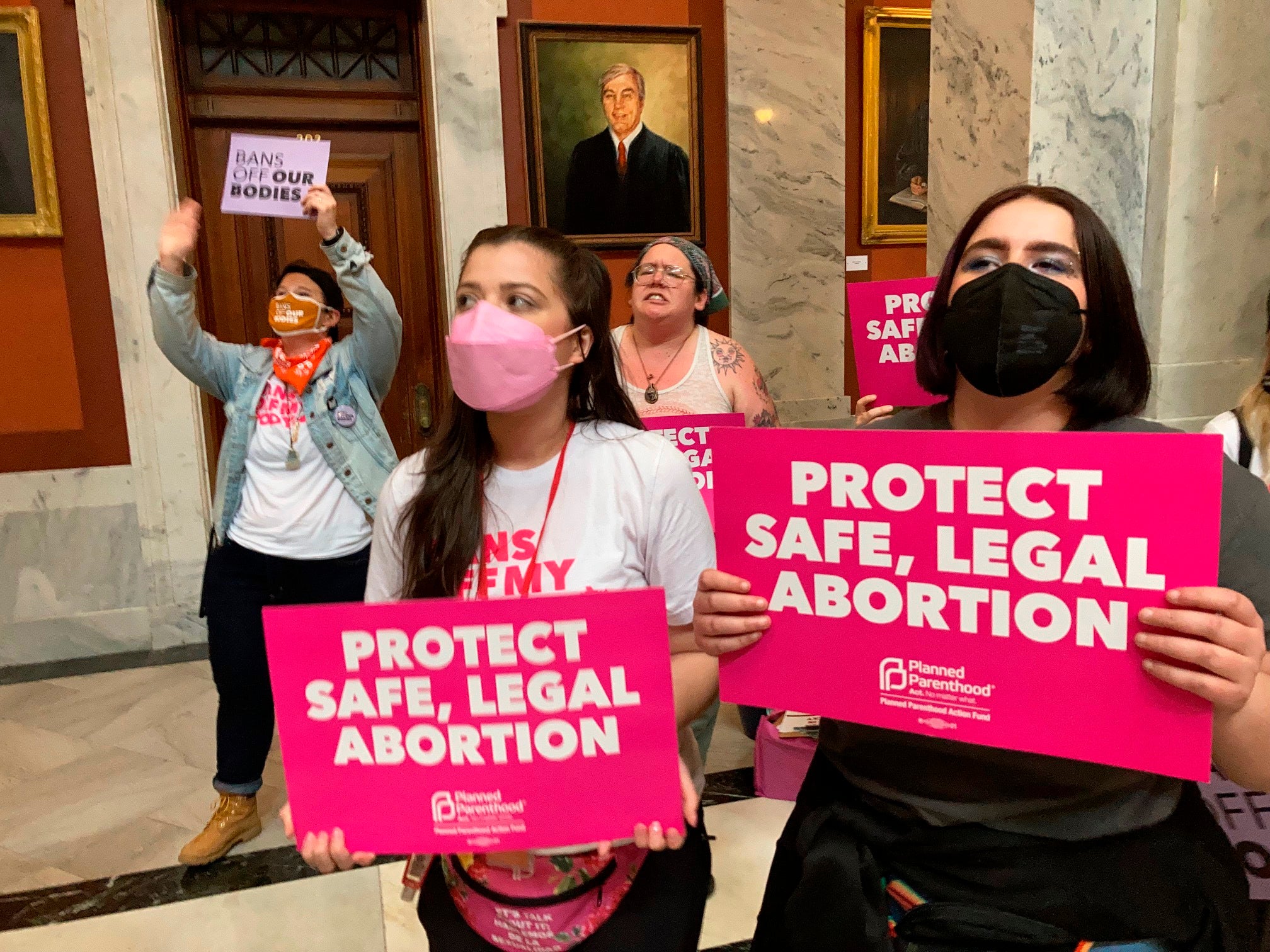Pregnant Kentucky woman dismisses abortion lawsuit weeks after filing after no heartbeat discovery
Jane Doe dismissed her case less than 10 days after filing it after an unexpected health issue cropped up

The unnamed pregnant woman who sued Kentucky officials over the state’s strict abortion bans before learning that her embryo no longer had a heartbeat is now dismissing her case.
“Plaintiffs voluntarily dismiss this action,” a 17 December filing stated.
The ACLU of Kentucky and Planned Parenthood, who were representing Jane Doe in the class action suit, issued a statement on Monday, blaming the state’s high court for placing the onus on patients, rather than providers, to challenge the abortion law.
“The Kentucky Supreme Court’s decision earlier this year to take away health care providers’ ability to raise the rights of their patients has backed Kentuckians into a corner. The court’s decision has forced Kentuckians seeking abortion to bring a lawsuit while in the middle of seeking time-sensitive health care, a daunting feat, and one that should not be necessary to reclaim the fundamental right to control their own bodies,” the statement said.
The groups encouraged others in the state who are seeking an abortion to contact them.
The case, while shortlived, was a whirlwind.
Jane Doe was eight weeks pregnant when she filed her case on 8 December, the lawsuit states. She “has decided that the best course of action for herself and her family is to terminate the pregnancy,” according to the filing.
But on 12 December, the lead plaintiff in the class action suit discovered that her embryo no longer had a heartbeat.
One of her lawyers, ACLU Reproductive Freedom Project deputy director Brigitte Amiri, issued a statement in light of the news.
“Jane Doe sought an abortion in Kentucky, and when she could not get one, she bravely came forward to challenge the state’s abortion ban,” Ms Amiri said. “Although she decided to have an abortion, the government denied her the freedom to control her body. Countless Kentuckians face the same harm every day as the result of the abortion ban.”
The Independent reached out to the ACLU for more information on Jane Doe’s health and the state of the suit.
Last week, the lead plaintiff and a branch of Planned Parenthood sued Kentucky Attorney General Daniel Cameron and three other state officials. The lawsuit is challenging two state abortion laws: the “total” ban and the “six-week” ban.
Jane Doe alleges that both bans violate multiple rights laid out in Kentucky’s constitution. This includes a right to privacy, which “protects against the intrusive police power of the state, putting personal and private decision-making related to sexual and reproductive matters beyond the reach of the state,” the filing states.
She is asking the court to “declare” both bans “unconstitutional and unenforceable.”
To exemplify the broad sweeping nature of the case, the filing stated that in 2021, when the procedure was last legal in the state, 4,400 people obtained abortions in Kentucky.
“I am a proud Kentuckian and I love the life and family I have built here. But I am angry that now that I am pregnant and do not want to be, the government is interfering in my private matters and blocking me from having an abortion,” Jane Doe wrote in a statement issued by the ACLU, one of the groups representing her. “This is my decision—not the government’s or any other person’s.”
Rebecca Gibron, CEO of Planned Parenthood Great Northwest, Hawaii, Alaska, Indiana, Kentucky, also issued a statement. “Jane Doe’s decision to fight back in court while pregnant and in need of an abortion is beyond brave,” Ms Gibron said. “In challenging the state’s abortion bans, she has provided hope for reproductive freedom that Kentuckians so desperately need. But this lawsuit should not have been necessary in the first place. Every Kentuckian should have access to abortion in their own state, because this is essential reproductive health care.”
Abortion bans have been a sticking point in Kentucky and beyond ever since the Supreme Court overturned Roe v Wade last year. In February, Kentucky’s Supreme Court refused to halt the two bans.
Abortion bans are being tested in other parts of the county too.
Just last week, in Texas, a judge allowed a 20-weeks-pregnant woman — whose baby is unlikely to survive until birth or if the baby does, no longer than minutes, hours or days — to get an emergency abortion, challenging the state’s bans. She has been to the emergency four times in the past month, her lawyer told the court.
However, after the temporary restraining order was approved, the Texas attorney general intervened, and the state’s supreme court temporarily blocked the court-approved abortion.
Join our commenting forum
Join thought-provoking conversations, follow other Independent readers and see their replies
Comments
Bookmark popover
Removed from bookmarks